
Help! is the fifth studio album by the English rock band the Beatles and the soundtrack to their film of the same name. It was released on 6 August 1965. Seven of the fourteen songs, including the singles "Help!" and "Ticket to Ride", appeared in the film and take up the first side of the vinyl album. The second side includes "Yesterday", the most-covered song ever written. The album was met with favourable critical reviews and topped the Australian, German, British and American charts.

John Miles was an English rock singer, guitarist and keyboard player best known for his 1976 top 3 UK hit single "Music", which won an Ivor Novello Award, and his frequent appearances at Night of the Proms. He won the "Outstanding Musical Achievement" award at the 2017 Progressive Music Awards. He released 10 albums from 1976 to 1999 and was also a touring musician for Tina Turner from 1987 to 2009.
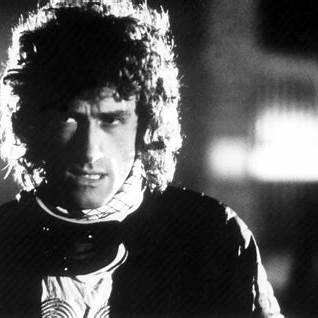
Rupert Neville Hine was an English record producer and musician. He produced albums for artists including Rush, Kevin Ayers, Tina Turner, Howard Jones, Saga, the Fixx, Bob Geldof, Thompson Twins, Stevie Nicks, Chris de Burgh, Suzanne Vega, Underworld, Duncan Sheik, Formula and Eleanor McEvoy. Additionally, Hine recorded eleven albums, including those billed under his own name, the pseudo-band name Thinkman, and as a member of the band Quantum Jump; with the latter, he achieved a number 5 hit on the UK Singles Chart in 1979, "The Lone Ranger". Additionally, he composed for film and television soundtracks, including the 1989 Ian Fleming biopic Goldeneye and the black comedy Better Off Dead.
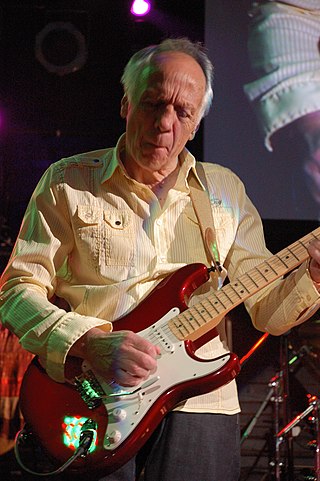
Robin Leonard Trower is an English rock guitarist who achieved success with Procol Harum throughout 1967–1971, and then again as the bandleader of his own power trio known as the Robin Trower Band.
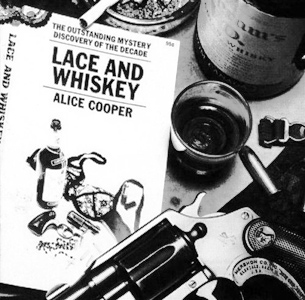
Lace and Whiskey is the third solo and tenth overall studio album by American rock singer Alice Cooper, released on April 29, 1977, by Warner Bros. Records.

"Help!" is a song by the English rock band the Beatles that served as the title song for the 1965 film and the band's accompanying soundtrack album. It was released as a single in July 1965, and was number one for three weeks in the United States and the United Kingdom.

"Solsbury Hill" is the debut solo single by English rock musician Peter Gabriel. He wrote the song about a spiritual experience atop Solsbury Hill in Somerset, England, after his departure from the progressive rock band Genesis, of which he had been the lead vocalist since its inception. The single was a Top 20 hit in the UK, peaking at number 13, and reached number 68 on the Billboard Hot 100 chart in 1977.
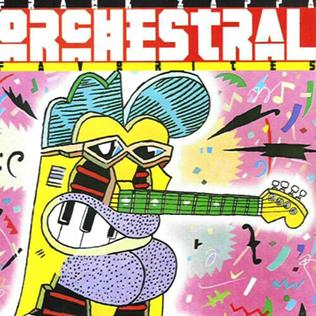
Orchestral Favorites is an album by Frank Zappa, released in May 1979 on his own DiscReet Records label, distributed by Warner Bros. Records. The album is entirely instrumental and features music performed by the 37-piece Abnuceals Emuukha Electric Symphony Orchestra. It reached number 168 on the Billboard 200 album chart in the United States.
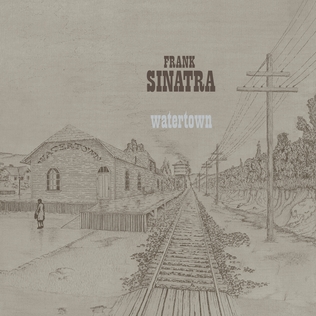
Watertown is a studio album by American singer Frank Sinatra, released in March 1970 through Reprise Records. It is a concept album centered on a man from Watertown, New York. In a series of soliloquies, the nameless narrator tells his heartbreaking story of personal loss: his wife has left him and their two boys for the lure of the big city. Watertown was produced and co-written by Bob Gaudio, one of four members of the rock band the Four Seasons, with Jake Holmes also co-writing the songs. It is the only album where Sinatra ever voiced over pre-recorded orchestral tracks. The album was released to mixed critical reviews and poor sales, with it being Sinatra's only major album release not to chart in the top 100 of the Billboard 200. It has since been reevaluated and many consider it to be among his finest albums.
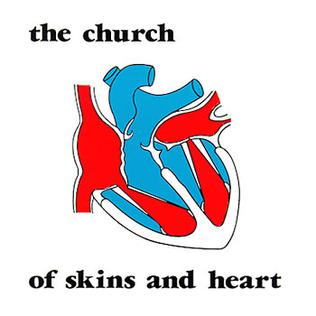
Of Skins and Heart is the debut album by the Australian psychedelic rock band The Church, released in April 1981 by EMI Parlophone. It peaked at No. 22 in the Australian Kent Music Report Albums Chart.

Afternoons in Utopia is the second album by German synth-pop band Alphaville, released in 1986 via Warner Music. The album was recorded between September 1985 and May 1986.
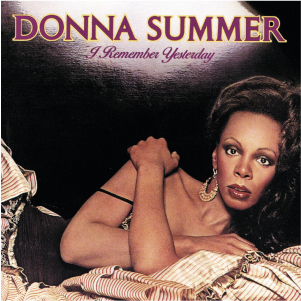
I Remember Yesterday is the fifth studio album by American singer-songwriter Donna Summer. It was released on May 13, 1977, seven months after the release of her previous album. Like her previous three albums, it was a concept album, this time seeing Summer combining the recent disco sound with various sounds of the past. I Remember Yesterday includes the singles "Can't We Just Sit Down ", "I Feel Love", the title track, "Love's Unkind" and "Back in Love Again". "I Feel Love" and "Love's Unkind" proved to be the album's most popular and enduring hits, the former of which came to be one of Summer's signature songs.

I Can See Your House from Here is the seventh studio album by English progressive rock band Camel. Released in 1979, a new line up was introduced with founding members Andrew Latimer (guitar) and Andy Ward (drums) joined by bassist Colin Bass and keyboardists Jan Schelhaas and Kit Watkins who replaced Dave Sinclair. At one point, the album was going to be called Endangered Species.
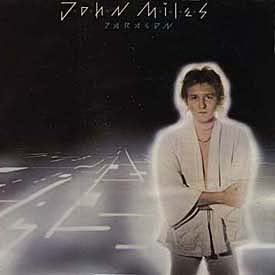
Zaragon is the third album by English singer/songwriter/guitarist John Miles, first released in 1978 and reissued as CD in 2008.
Alan Tarney is an English record producer and musician. He was born in Northside, Workington, Cumberland, but spent his teenage years in Adelaide, Australia, where he met his songwriting and musical partner Trevor Spencer. He is best known for his association with Cliff Richard and producing "Take On Me" by a-ha.
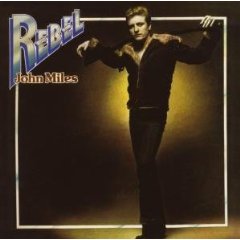
Rebel was the first solo album of John Miles. It was his most successful album, and contained the singles "Highfly" and "Music".
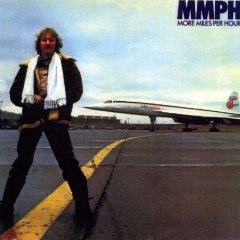
More Miles Per Hour was the fourth solo album released by John Miles in 1979. As with Zaragon, the album didn't manage to crack the top 40 in the U.K and the singles from the album failed to chart.
For this album, Miles reunited with producer Alan Parsons and orchestral arranger Andrew Powell, with whom he also collaborated on Rebel.
For the first time, Miles played some of tracks before the album was released at the Great British Music Festival in Wembley in December 1978.
For the cover, Miles wanted a picture of himself as a pilot in front of a Concorde, but British Airports in London denied permission so Miles had to fly to New York to do the shoot.

Longhorns & Londonbridges is a 1974 album by B. J. Thomas, released on Paramount Records, during the time when rights to the Paramount Records name were owned by Paramount Pictures. It is commonly misidentified as Longhorn & London Bridges.

The Shadow of Your Smile is the eighteenth studio album by American pop singer Andy Williams and was released in April 1966 by Columbia Records and included covers of "Michelle" and "Yesterday", the same pair of Beatles ballads that labelmate Johnny Mathis recorded for his 1966 album of the same name. For Williams these selections initiated a trend away from the traditional pop formula that his album output at Columbia up until this point had adhered to.

Porcelain is the second album by English singer-songwriter Julia Fordham, released in 1989. It became Fordham's highest-charting album in both the UK Albums Chart and US Billboard 200, peaking at numbers 13 and 74 respectively.



















